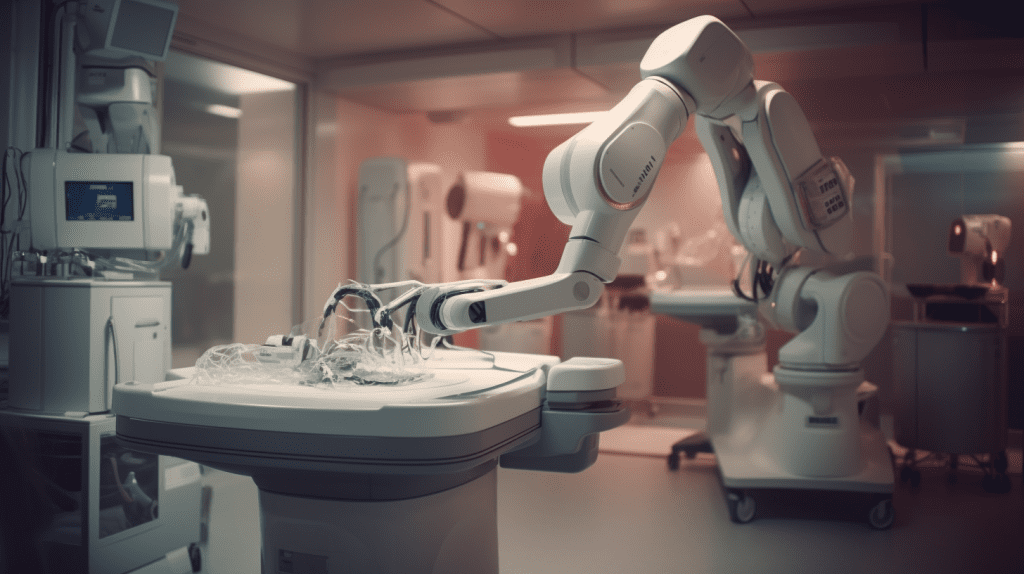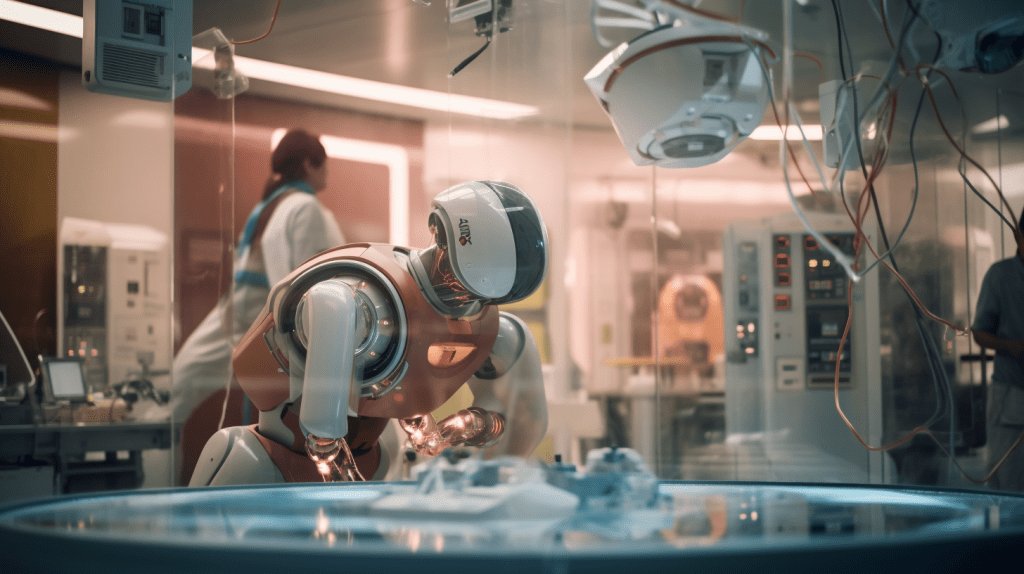
AI Revolutionizing Healthcare 💊🤖
Artificial intelligence (AI) has been making remarkable strides across various industries, and healthcare is no exception. From enhanced diagnostics to personalized treatment plans, AI is revolutionizing how we approach medicine and patient care. Let’s take a closer look at some of the ways AI is transforming healthcare and what it means for the future of medical practice.
Improved Diagnostics
AI-driven algorithms are capable of analyzing medical images (such as X-rays and MRIs) with remarkable speed and accuracy, sometimes even outperforming human specialists. This has the potential to speed up the diagnostic process and help detect diseases like cancer, Alzheimer’s, and heart disease at earlier stages, leading to better patient outcomes.

Personalized Medicine
AI is enabling the development of personalized treatment plans based on an individual’s unique genetic makeup, lifestyle factors, and medical history. By tailoring treatments to each patient, doctors can maximize effectiveness and minimize side effects, leading to improved patient care and satisfaction.

Drug Discovery
The process of developing new drugs can be time-consuming and costly. AI is helping to streamline this process by analyzing vast amounts of data and identifying potential drug candidates faster and more efficiently than traditional methods. This could lead to the discovery of new, life-saving medications at a fraction of the time and cost.

Virtual Health Assistants
AI-powered chatbots and virtual assistants are being used to provide patients with immediate medical advice and support. These tools can help triage patient concerns, answer basic health questions, and even recommend appropriate next steps, reducing the burden on healthcare providers and helping patients access care more easily.

Remote Patient Monitoring
Wearable devices and telemedicine technologies are leveraging AI to monitor patients’ health remotely, allowing doctors to track progress, detect potential issues, and intervene when necessary. This can improve patient outcomes and reduce the need for hospital visits, especially for those with chronic conditions or living in remote areas.

The Future of AI in Healthcare
As AI continues to advance and integrate into healthcare, we can expect even more groundbreaking applications and benefits. These innovations have the potential to reduce healthcare costs, improve patient outcomes, and increase overall efficiency within the industry.

However, it’s essential to address ethical concerns, such as data privacy and the potential for AI to perpetuate existing biases in healthcare. By fostering collaboration between healthcare professionals, AI experts, and policymakers, we can ensure that AI is used responsibly and effectively to improve patient care.
Stay tuned to our blog for more insights into the ever-evolving world of technology and its impact on healthcare. Share your thoughts on the role of AI in healthcare in the comments below, and let’s keep the conversation going! 💬🩺